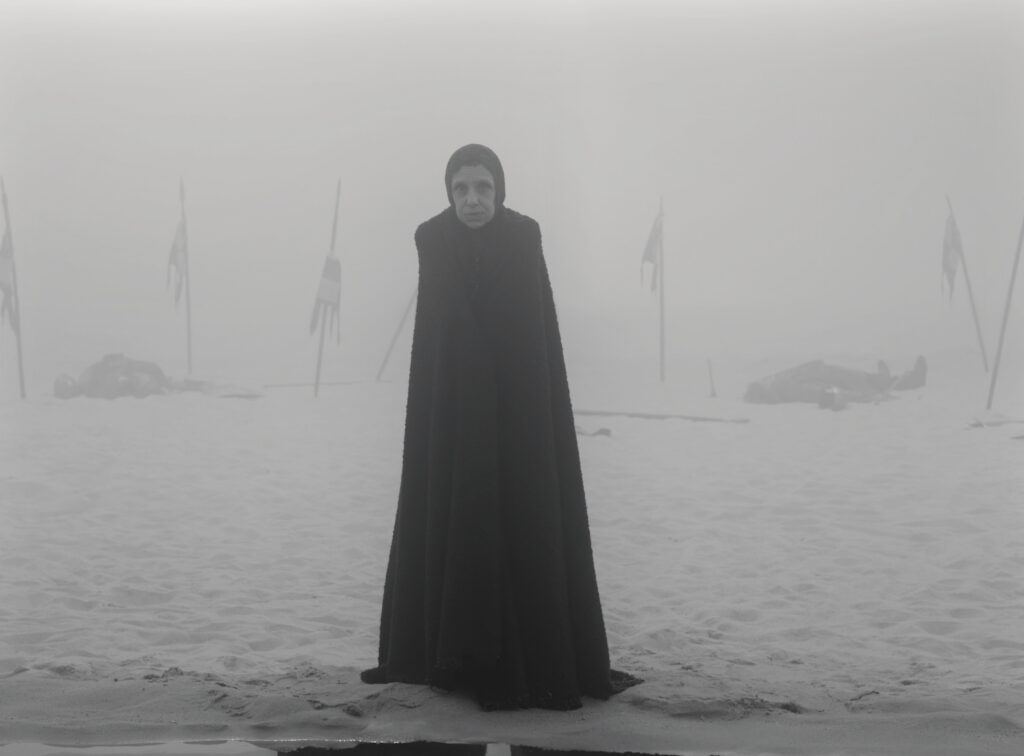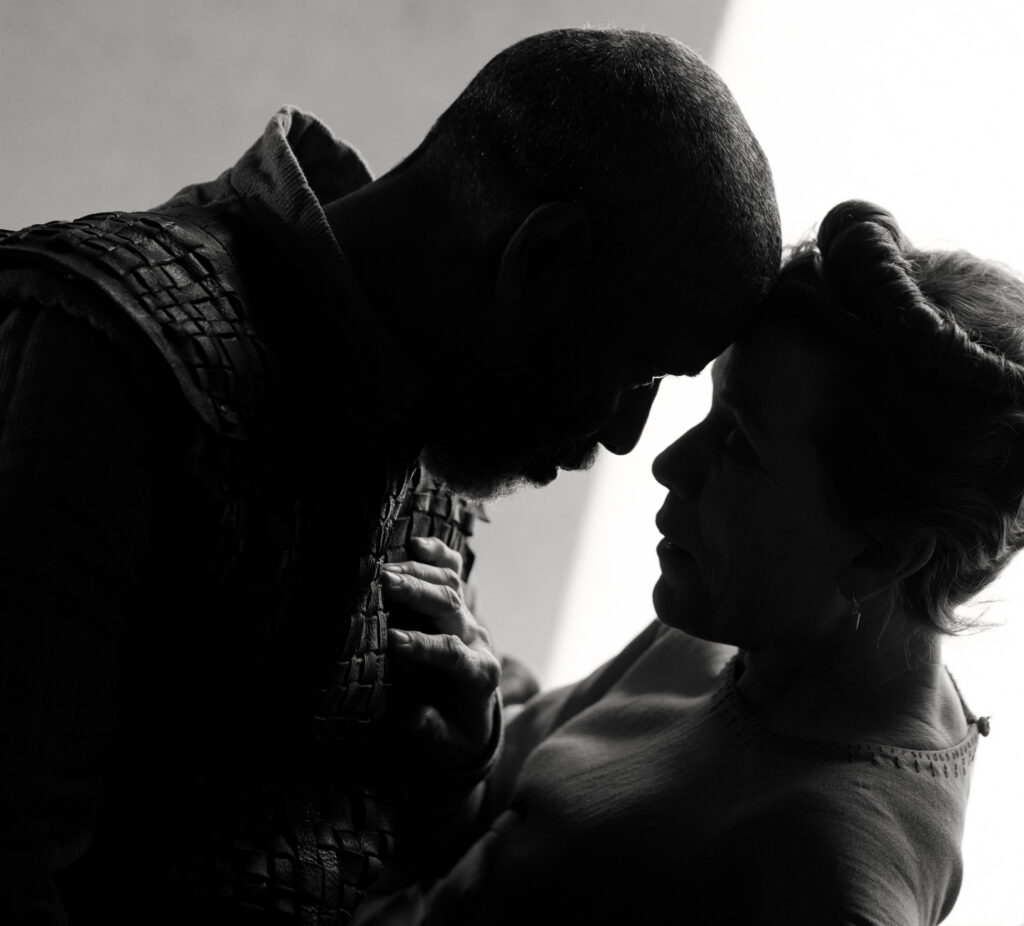The Tragedy of Macbeth is an interesting genre exercise.
Joel Coen, in his solo directorial venture, executes a direct adaptation of Macbeth from a screenplay point of view. But from an aesthetic point of view, The Tragedy of Macbeth converts Shakespeare’s violent, visceral story into an impressionist nightmare.

Shot in black and white, The Tragedy of Macbeth at times feels like it has been made abstract for the sake of abstraction itself. However, the use of almost stark and brutalist architecture, featuring towering pillars and their shadows, help evoke memories from Ingmar Bergman’s The Seventh Seal.
The nightmarish effect is furthered by the three weird witches, who oscillate between a singular witch figure and a trio of “witches”, thereby adding to the visual ambiguity.
The story of Macbeth has been retold countless times, but Coen forgoes the theatricality of actors’ performances in this film. Perhaps it is because a camera can convey dialogues more easily to the audience than actors to the audience sitting in the back rows of a theatre. As a result, the verbose dialogues from the play are spoken with a whispery effect, bearing in them the pace and flow of a regular conversation, which robs the cadence of the play but helps us view it in a different rhythm.
It’s also interesting how Coen uses shadow due to lights from the pillars to convey Macbeth’s mindset during a soliloquy. I personally thought that the choice of Denzel to soliloquise with a whisper helps convey the impression of an internal monologue while also hinting at a sense of madness taking over, at least for me.

Performance-wise, Denzel Washington effectively conveys the almost pathetic nature of Macbeth during the moments of emotional outbursts. Frances McDormand, on the other hand, is too reserved to let out any impression. However, during the end, she ultimately manages to imbibe her character with a haunting effect. Corey Hawkins shines as Macduff in the limited screen time he has.
It was the first time while watching a Shakespeare adaptation that I realised I was reciting the lines of the play from my memory. The nostalgia of Shakespeare is a unique gear that I didn’t know existed for me. But even as an adaptation, the nightmarish feeling it evokes separates the Tragedy of Macbeth from its 25 other adaptations.
However, it is far from perfect. It can come off as a little too bloodless and emotionally distant at times for its own good. It’s not the Throne of Blood, but then again, nothing can capture that raucous energy of Kurosawa’s adaptation.
Final Verdict:
The Tragedy of Macbeth is still distinctly abstract, a faithful adaptation almost painterly in its interpretation, and an interesting genre exercise created because, well, why not?
Popcorn Rating – 


 [4/5]
[4/5]
The Tragedy of Macbeth releases globally on Apple TV + on January 14, 2022.